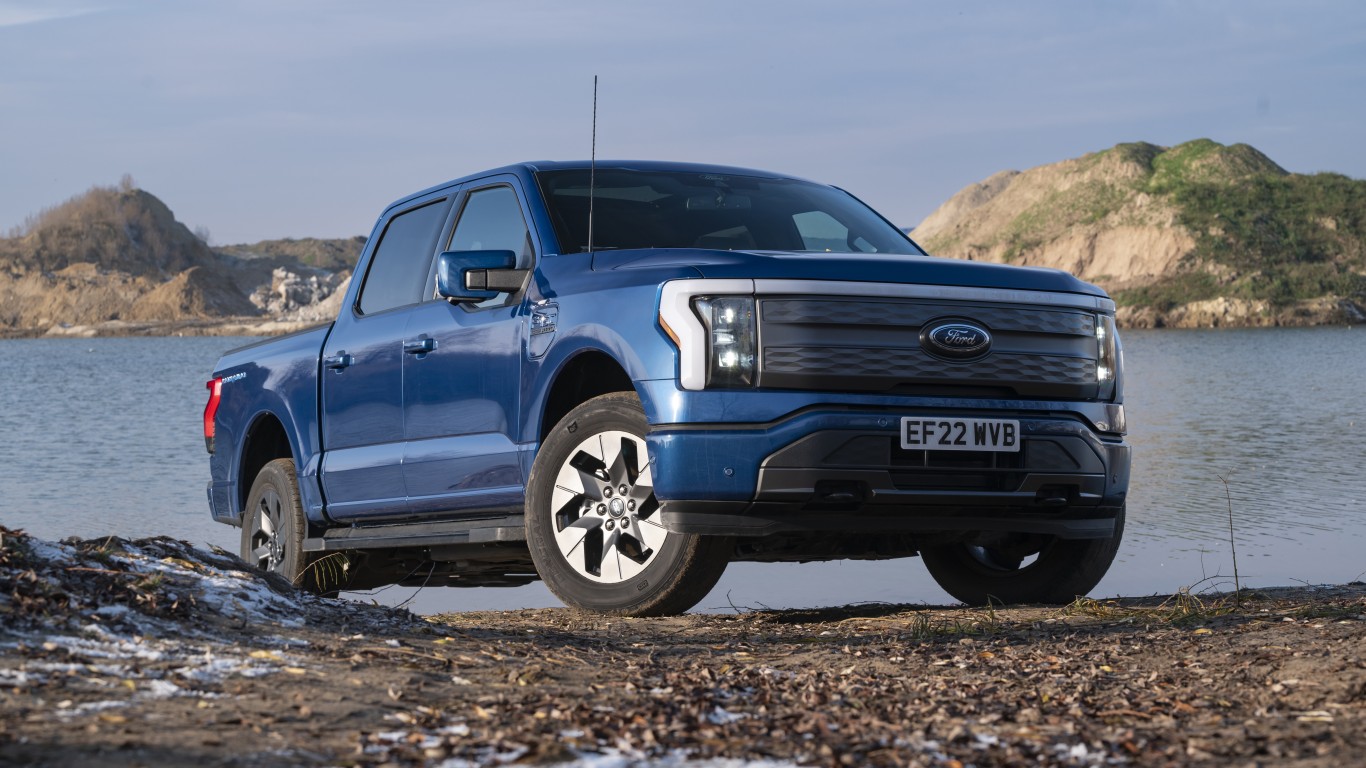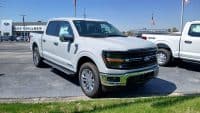
This post may contain links from our sponsors and affiliates, and Flywheel Publishing may receive
compensation for actions taken through them.
Amazingly, car quality rankings make little difference in brand sales. Among the most notable example of this are the brands owned by Fiat Chrysler Automobiles N.V. (NYSE: FCAU). These include Jeep, Ram, Fiat, Chrysler and Dodge. Often at the very bottom of car quality ratings, sales increases have helped the parent company gain sales and market share in the United States for years.
The Fiat Chrysler example is against the tide.
Auto companies often make use of awards and quality ratings — when they’re good at least — to attract car buyers. The most important brand quality surveys are performed by research firm J.D. Power, Consumer Reports and the American Customer Satisfaction Index (ACSI).
Recent ACSI survey results are generally bad for the industry. The authors of the report said:
Car buyer satisfaction is down for a third straight year as prices rise and recalls continue, according to new data from the American Customer Satisfaction Index (ACSI). Customer satisfaction with automobiles falls 3.7 percent to 79 on ACSI’s 100-point scale.
Satisfaction is at its lowest level since 2004.
According to the research firm:
Among 27 nameplates tracked by the ACSI, 15 lose ground in customer satisfaction and only 2 improve from a year ago – both foreign-made. Foreign-made cars have a significant advantage in customer satisfaction and 77 percent of the above-average nameplates in the ACSI are imports. The highest-scoring automakers remain Japanese and luxury brands in general. Considering domestic automakers only, Ford, which includes the Lincoln nameplate, is the sole manufacturer maintaining overall customer satisfaction (81). General Motors (NYSE: GM) slips to 79 (-3%) and Fiat Chrysler falls to 75 (-5%).
ACSI based its ratings on 4,294 surveys completed in the second quarter of this year. The report covers car buyer satisfaction each year from 1995 to 2015. The ACSI provides rankings for a range of industries, including health care, financial services and the energy sector. The ACSI also produces an annual rating of car brands, which is carefully followed by both car companies and consumers.
These are the highest and lowest rated car brands.
1. Lexus
> 2015 ACSI score: 84
> 2015 YTD sales: 95,821
> YOY change: 1.2%
Lexus was created by Toyota Motor Corp. (NYSE: TM) to compete with BMW, Mercedes, Lincoln and Cadillac in the United States.
2. Acura
> 2015 ACSI score: 83
> 2015 YTD sales: 102,002
> YOY change: 12.8%
Honda Motor Co. Ltd. (NYSE: HMC) launched Acura because it did not have a premium car brand in the United States.
3. Lincoln
> 2015 ACSI score: 83
> 2015 YTD sales: 56,648
> YOY change: 8.1%
One of Ford Motor Co.’s (NYSE: F) oldest brands, Lincoln has struggled in the United States to match sales of German leaders in luxury brands, BMW and Mercedes.
4. Mercedes-Benz
> 2015 ACSI score: 83
> 2015 YTD sales: 192,496
> YOY change: 7.7%
Mercedes perennially has been the leading premium car in the U.S. market, often changing places with BMW for the honor.
5. Subaru
> 2015 ACSI score: 82
> 2015 YTD sales: 322,935
> YOY change: 13.8%
Subaru was long considered an also-ran among Japanese car companies. That perception has changed somewhat as sales increased in recent years.
6. BMW
> 2015 ACSI score: 82
> 2015 YTD sales: 195,593
> YOY change: 6.4%
BMW is the world’s largest luxury brand based on unit sales.
7. Toyota
> 2015 ACSI score: 82
> 2015 YTD sales: 1,448,621
> YOY change: 4.9%
Year after year, Toyota is the leading Japanese car company in the United States.
8. Hyundai
> 2015 ACSI score: 81
> 2015 YTD sales: 442,163
> YOY change: 10.6%
Hyundai is one of the two large Korean brands sold in the United States.
9. Cadillac
> 2015 ACSI score: 80
> 2015 YTD sales: 95,053
> YOY change: -4.2%
Like Lincoln, Cadillac sales have failed to keep up with the leading German imports. General Motors, which is the largest U.S. auto maker, manufactures Cadillac.
10. Buick
> 2015 ACSI score: 80
> 2015 YTD sales: 127,105
> YOY change: -3.5%
Buick is one of the model lines GM decided to keep when it dropped Pontiac and Saturn.
11. Honda
> 2015 ACSI score: 80
> 2015 YTD sales: 899,325
> YOY change: 2.7%
Honda is one of the traditional big three Japanese car companies, along with Toyota and Nissan.
12. Mazda
> 2015 ACSI score: 80
> 2015 YTD sales: 185,665
> YOY change: 0.3%
Mazda is another Japanese car company that tried to venture into the United States but with little success.
13. Volkswagen
> 2015 ACSI score: 80
> 2015 YTD sales: 205,742
> YOY change: -1.9%
Volkswagen, the largest car company in the world, has struggled to gain market share in America, especially since the diesel emissions scandal came to light.
14. Volvo
> 2015 ACSI score: 79
> 2015 YTD sales: 34,985
> YOY change: 2.2%
Volvo nearly disappeared from the U.S. market when Ford dumped it in 2010. It is now owned by Chinese car company Geely.
15. Chevrolet
> 2015 ACSI score: 79
> 2015 YTD sales: 1,242,409
> YOY change: 6.7%
Chevrolet is GM’s largest division by far, with vehicles aimed at the middle of the U.S. car market.
16. Ford
> 2015 ACSI score: 79
> 2015 YTD sales: 1,459,704
> YOY change: 2.1%
Ford’s flagship brand markets the best-selling vehicle in America, the F-Series pickup.
17. GMC
> 2015 ACSI score: 78
> 2015 YTD sales: 313,490
> YOY change: 12.1%
GMC is GM’s division devoted to pickups and sport utility vehicles (SUVs).
18. KIA
> 2015 ACSI score: 78
> 2015 YTD sales: 367,263
> YOY change: 5.0%
Kia faced severe public backlash a few years ago when the EPA found that it and parent company Hyundai had misrepresented the fuel efficiency of several of its vehicles.
19. Audi
> 2015 ACSI score: 78
> 2015 YTD sales: 111,269
> YOY change: 12.4%
Audi, manufactured by Volkswagen, is rapidly becoming a direct competitor to Mercedes and BMW as its sales have recently climbed more rapidly than it competitors’ sales have.
20. Infiniti
> 2015 ACSI score: 77
> 2015 YTD sales: 74,713
> YOY change: 10.1%
Nissan hoped to have the same success with Infinity as Toyota had with Lexus, but sales figures make it clear that the strategy has not worked.
21. Mitsubishi
> 2015 ACSI score: 77
> 2015 YTD sales: 57,412
> YOY change: 24.8%
Mitsubishi recently shut its only plant in the United States as sales have faltered.
22. Nissan
> 2015 ACSI score: 77
> 2015 YTD sales: 792,642
> YOY change: 4.6%
Nissan is traditionally the number three Japanese brand in the United States.
23. Dodge
> 2015 ACSI score: 76
> 2015 YTD sales: 294,791
> YOY change: -16.0%
Dodge is Fiat Chrysler’s sports car brand, selling the Challenger and Charger.
24. Mini
> 2015 ACSI score: 76
> 2015 YTD sales: 35,451
> YOY change: 18.3%
Mini is BMW’s downscale answer to the low-priced, high gas mileage segment.
25. Jeep
> 2015 ACSI score: 75
> 2015 YTD sales: 474,905
> YOY change: 21.0%
Due in part to the resurrection of the Grand Cherokee, Jeep is Fiat Chrysler’s most successful division.
26. Chrysler
> 2015 ACSI score: 74
> 2015 YTD sales: 195,970
> YOY change: 19.0%
The Chrysler flagship brand is aimed at the mid-market, with most of its sales coming from its 200 and 300 nameplates.
27. Fiat
> 2015 ACSI score: 73
> 2015 YTD sales: 250,333
> YOY change: -13.0%
Fiat Chrysler has tried to sell Fiat as a low-priced, high gas mileage car. So far, the company has not had much success.
Get Ready To Retire (Sponsored)
Start by taking a quick retirement quiz from SmartAsset that will match you with up to 3 financial advisors that serve your area and beyond in 5 minutes, or less.
Each advisor has been vetted by SmartAsset and is held to a fiduciary standard to act in your best interests.
Here’s how it works:
1. Answer SmartAsset advisor match quiz
2. Review your pre-screened matches at your leisure. Check out the advisors’ profiles.
3. Speak with advisors at no cost to you. Have an introductory call on the phone or introduction in person and choose whom to work with in the future
Get started right here.
Thank you for reading! Have some feedback for us?
Contact the 24/7 Wall St. editorial team.


